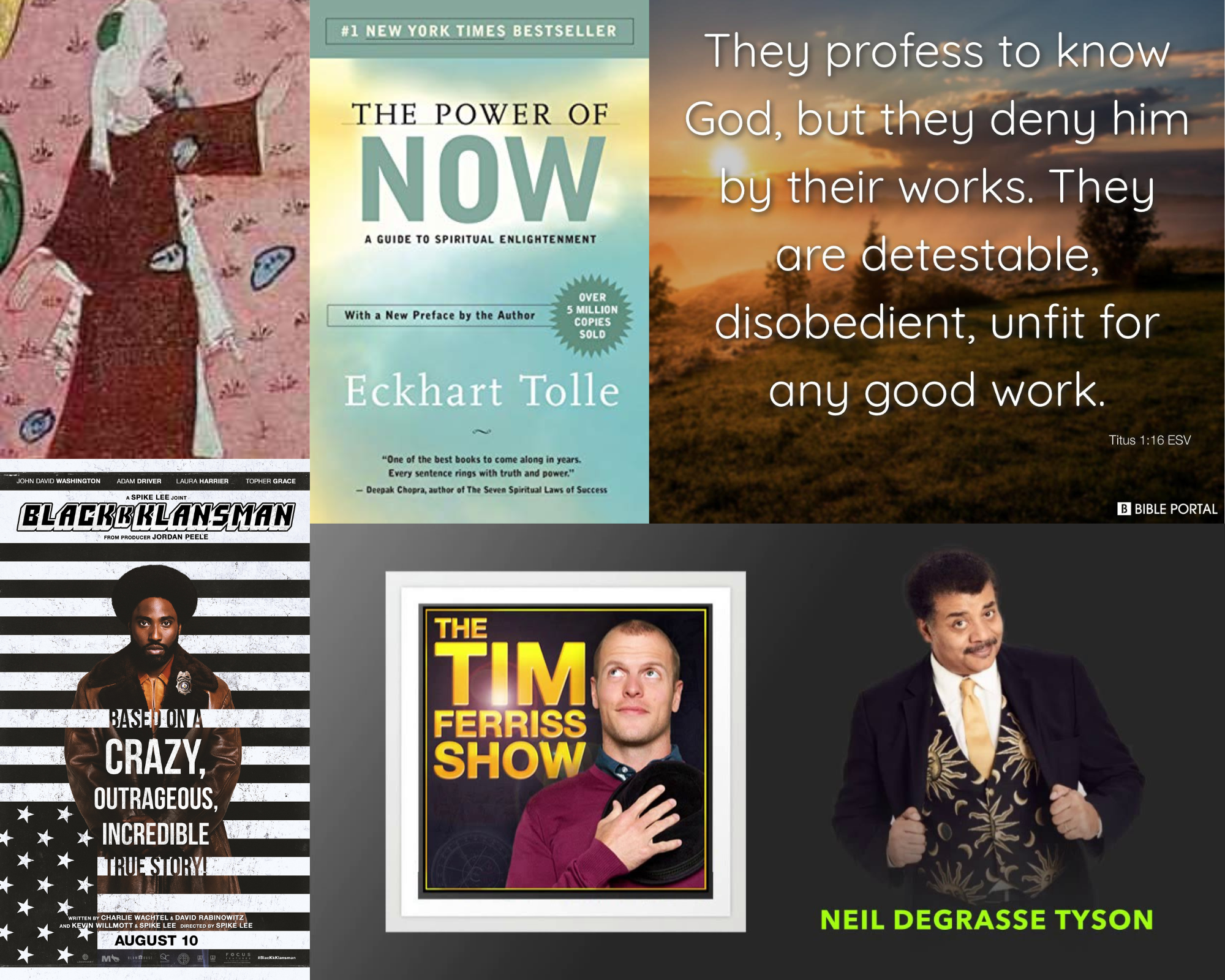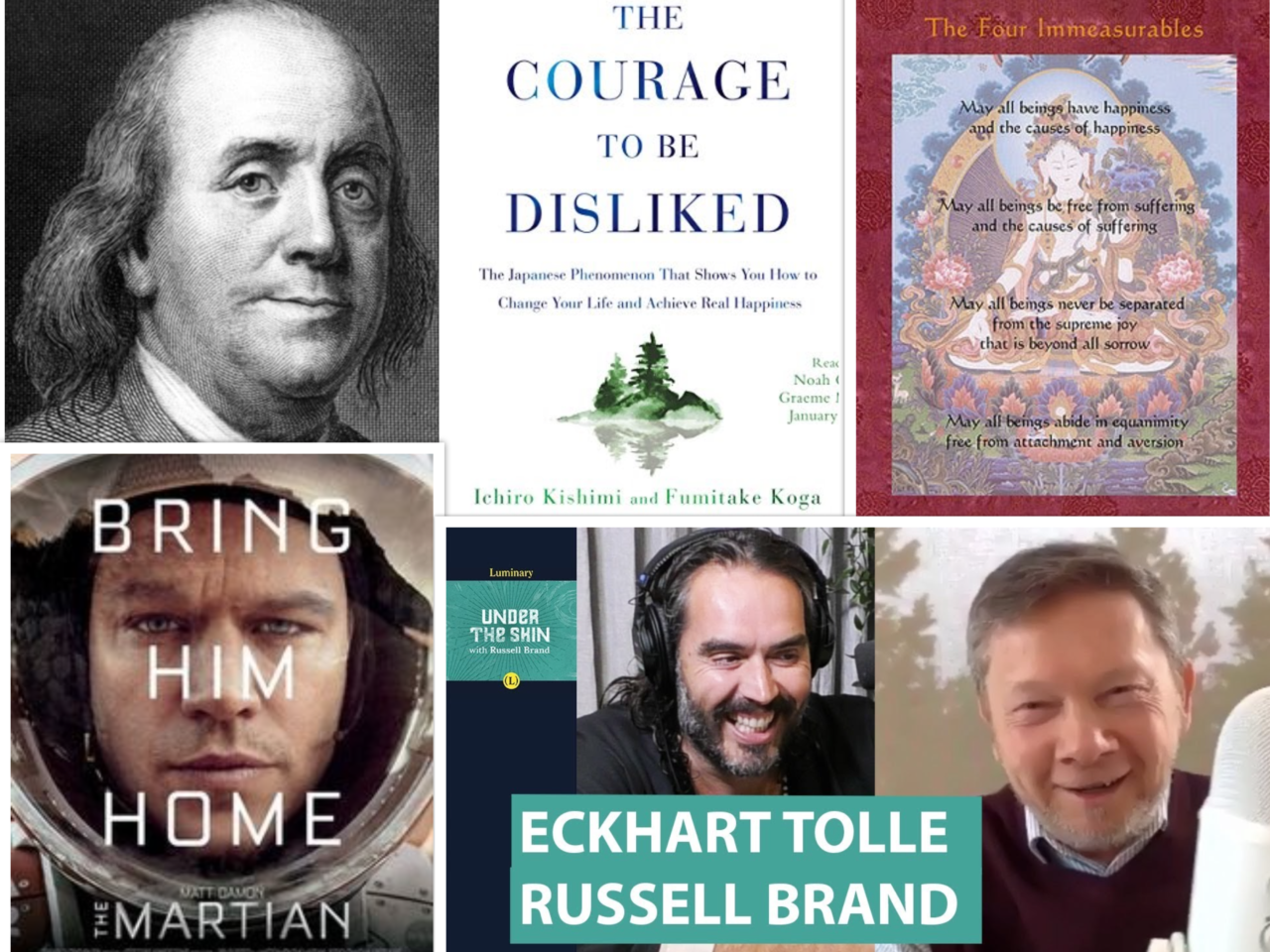Sunday Supplement #91 (February 5th, 2023)
Below is another Sunday Supplement with a quote worth sharing, a book worth reading, a movie worth watching, brainfood worth consuming, and a spiritual passage worth pondering.
I hope you take something away from these recommendations that enriches your week ahead!
Quote of the Week:
“Without knowledge, action is useless, and knowledge without action is futile.”
– Abu Bakr al-Ṣiddīq
Book of the Week:
The Power of Now – Eckhart Tolle
I’ve featured Eckhart Tolle in six previous Sunday Supplements, but I haven’t featured arguably his best work, The Power of Now.
The book delves into concepts of self-reflection and being present. Tolle provides insight into why both are powerful tools, and he gives exercises to achieve the principles.
Tolle is a spiritual teacher, public speaker, and bestselling author. Oprah Winfrey hosted a 10-episode web series with him and, in a previous interview, stated that what she learned from him eliminated all stress from her life.
Most self-improvement books point to many of the same conclusions about living a better life. For me, Tolle’s The Power of Now is one of the best and most useful.
Movie of the Week:
Spike Lee’s catalog of movies is extensive, stretching back to the 80s, and well worth delving into. BlacKkKlansman is one of his more recent masterpieces.
The film tells the true story of the first Black detective in the Colorado Springs Police Department.
Ron Stallworth infiltrates a local Ku Klux Klan branch with the help of his Jewish colleague and combats the racist organization from within.
BlacKkKlansman has much to appreciate from a filmmaking point of view and much to take in on the history of racism in America.
Brainfood of the Week:
Neil deGrasse Tyson — How to Dream Big | The Tim Ferriss Show
Neil deGrasse Tyson is an astrophysicist, educator, and author. He has been appointed by the United States government on multiple occasions in an advisory capacity or to serve on a scientific commission.
In the interview with Tim Ferriss, Tyson discusses his childhood, his education, and how he progressed in his career as an astrophysicist.
There are many entertaining stories in the almost two-hour interview, in addition to the coverage of his career in science.
I’ve featured many Tim Ferriss podcast interviews in previous Sunday Supplements, and there is always something worth picking up from them. Tyson’s is another great episode.
Closing Spiritual Passage:
“They profess to know God, but they deny him by their works. They are detestable, disobedient, unfit for any good work.”
– Titus 1:16
The Epistle to Titus is attributed to Paul the Apostle and describes the requirements and duties of elders and bishops.
This passage calls out those who preach the word of God but don’t walk the walk. It emphasizes the expression that actions are louder than words.
The Bible has many passages that express how God doesn’t view flowery words and lack of action highly.
There are also passages that express the good path of improvement. This verse from the Epistle to Titus reminds me to reflect on what person I want to be.
Think about what you want to put out into the world, and have a blessed week ahead!
8 Comments


